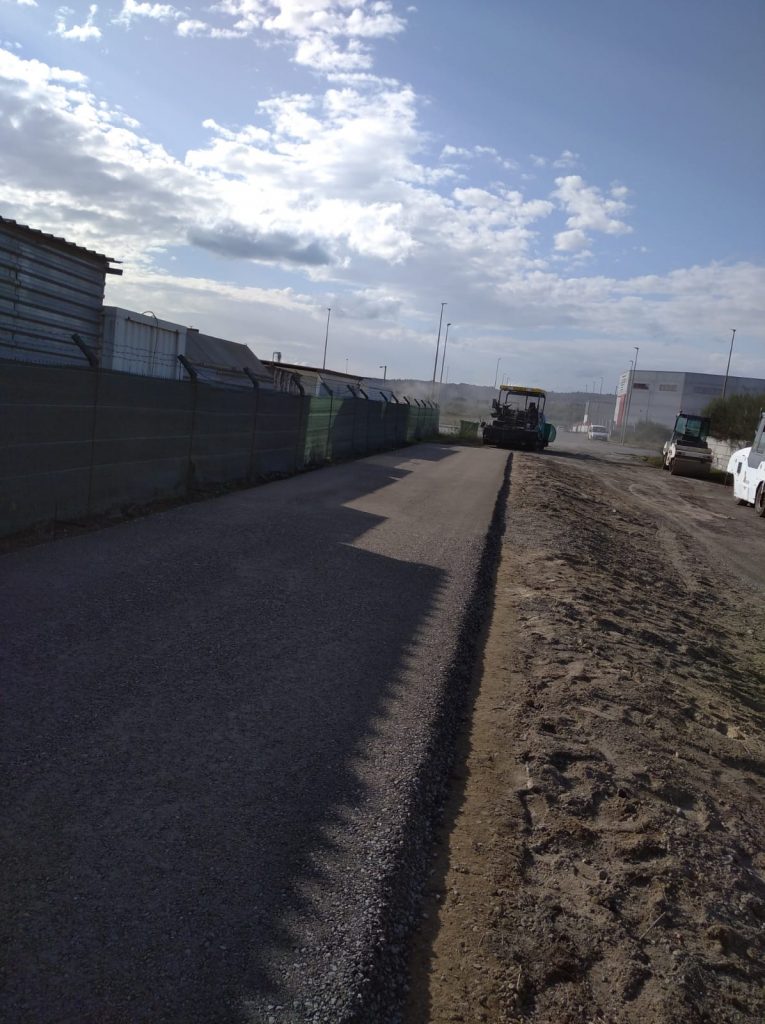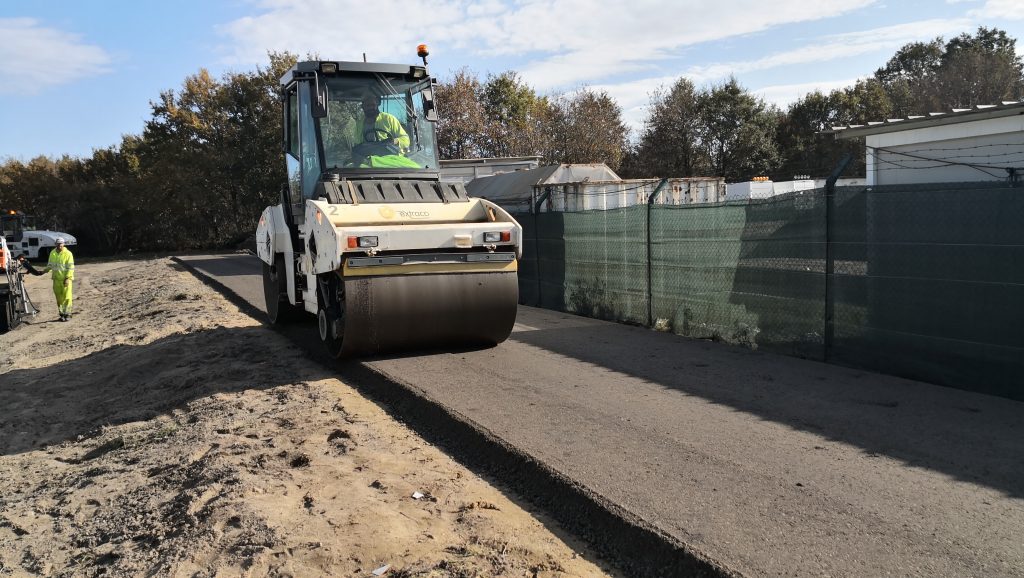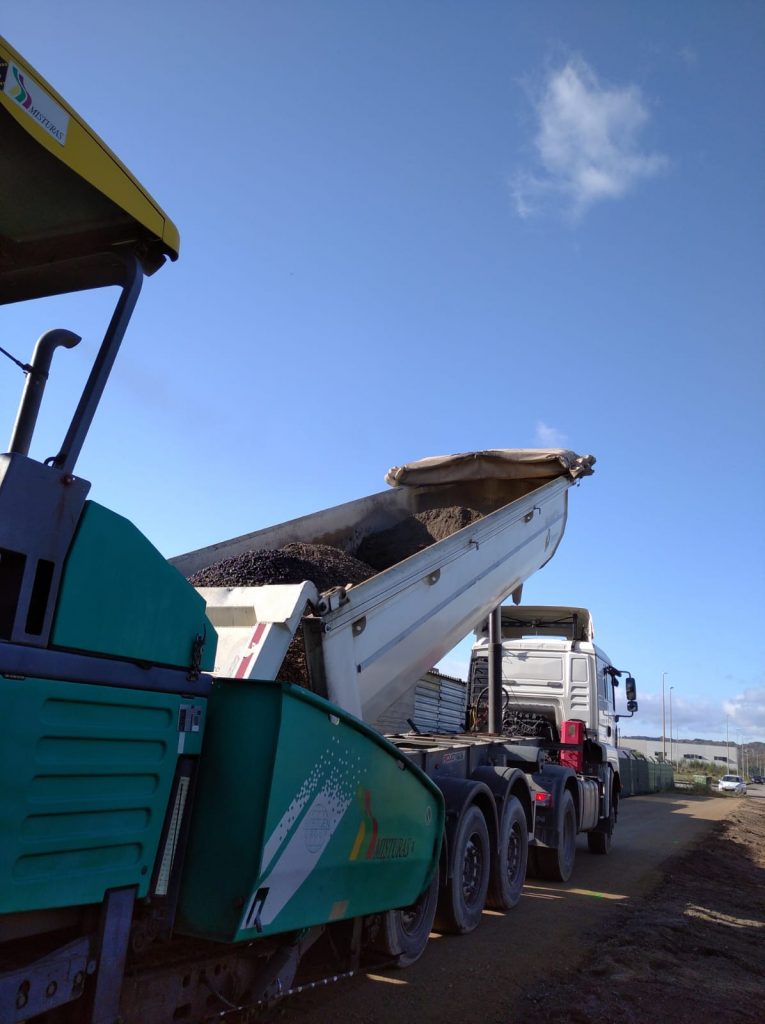Emulcell, bioasphalt for greater sustainability

What follows is a success story in the world of sustainable mobility. Misturas is a medium-sized company that is part of the Emulcell project, along with CETIM (Technological Center for Multisectoral Research) and the Roads, Geotechnics and Materials (GCGM) group of the University of A Coruña. Together they devised and created a cold bituminous mix as an alternative to conventional asphalt (which is generated hot). A mix, therefore, that is more sustainable and efficient, and which represents a leap in quality and efficiency in the face of climate change from the road itself. A civil engineering enterprise that supports greener, healthier roads, which are less harmful to nature. “We take advantage of a novel material, nanocellulose, which comes from wood and which allows new mixtures to reduce the oil content,” summarizes Francisco Javier Prego, head of the Misturas R&D department.
“Oil is a polluting product that plays a big part in the construction of roads, in the road surface. These are hot mixtures that are made with bitumen—11,000 tons of which are produced per year in Europe alone—and petroleum derivatives. “This is the case all over the world. And with the Emucell project the aim is to reduce the amount of bitumen, replacing it with wood derivatives,” he explains, pleased with the progress achieved. And no, this is not about manipulating the surface of the asphalt, the upper part, which can be seen when driving on it, but rather the lower layers. In short, it is another commitment to greater sustainability – without undermining road safety: on the contrary – that is the source of so much concern for both public administrations and private entities, because of the objectives laid out in the United Nations 2030 Agenda .
Because yes, step by step, another world is possible.

More details of this step forward
The Emulcell initiative offers many advantages, and it is a great example of a local project with a global vocation. As the technician Santiago Nieto Mengotti, from the CIS Tecnoloxía e Deseño of Galicia, points out, its main characteristics are the achievement of a sustainable bio-asphalt, in addition to a shorter setting time “for road installation” compared “with traditional non-additive mixtures.” It also offers greater tolerance to adverse weather conditions – “more resistance to water, by improving the permeability of the mixture”, which dislodges fluid more effectively – as well as better grip “between the different substrates of the asphalt”. All of this has been successfully tested in a road section in Allariz, Orense. All in all, Emulcell fulfills its environmental purpose and offers added benefits and guarantees for mobility, as well as contributing to the circular economy.



The photographs show several stages of the construction process of the cold bitumen mixture on the base layer; specifically, a gravel-emulsion whose components include nanocellulose.
Paving a greener future
“Right now there is nothing like this. As a result of this project, which was developed from July 2017 to December 2020, new research projects have begun to appear that seek, instead of making so many hot mixtures, to focus more on cold and tempered bituminous mixtures. From the manufacturing perspective, they are less harmful to the environment,” says Francisco Javier Prego, head of the Misturas R&D department. And this is only the beginning.
The project is the result of a great team effort that received well-deserved recognition in the form of a prize in the 1st Innovative Materials Competition of Galicia. “The award made us very happy, because, in addition, it recognizes the construction sector, which is not always perceived as environmentally friendly, when we are actually very sensitive to the environment and try to do things better and better,” says Prego.
Neither he nor his team are satisfied yet, however, because there is still a lot more to explore. With less oil and more natural products, yes. Because everything adds up from different areas to continue paving a greener future.